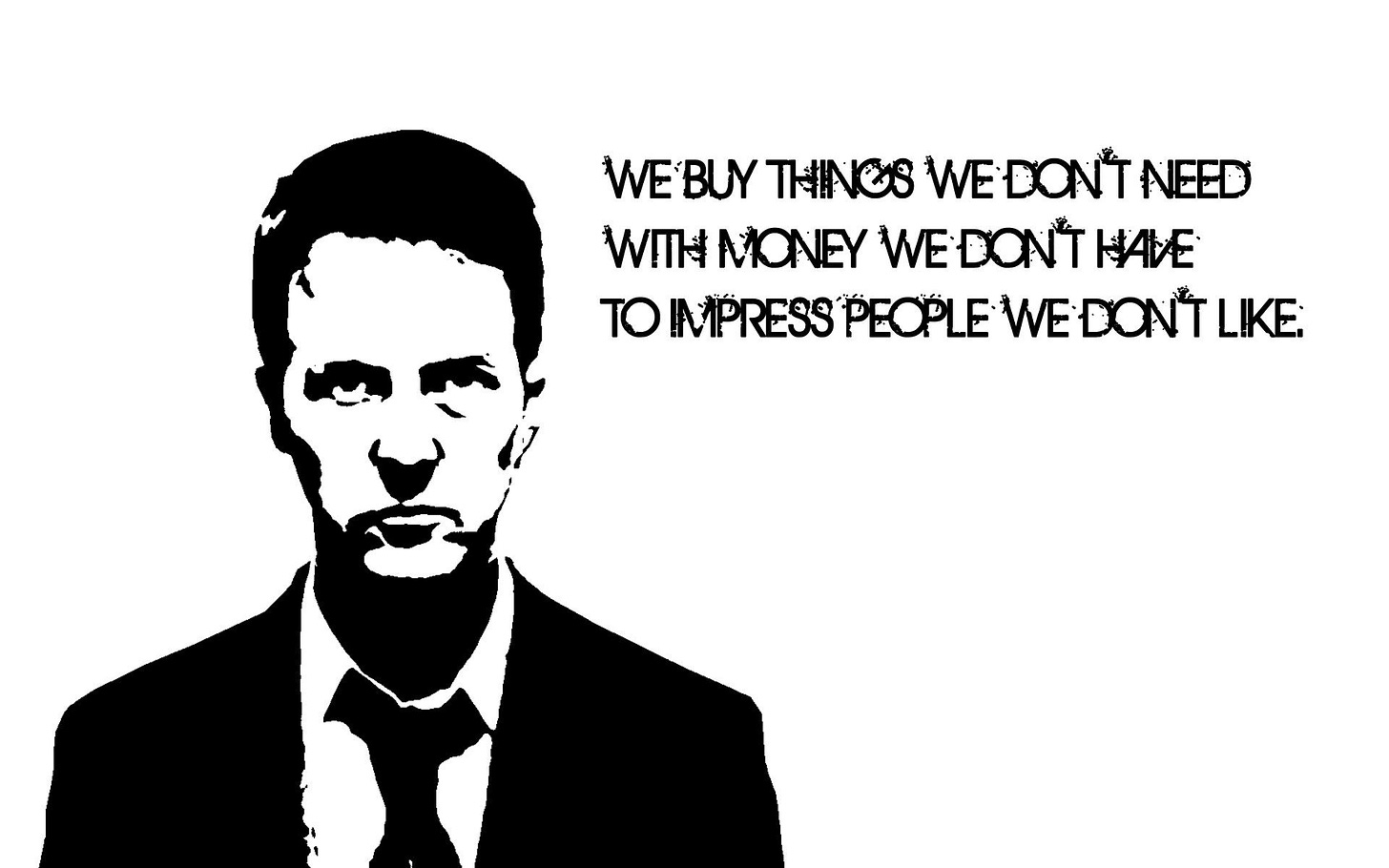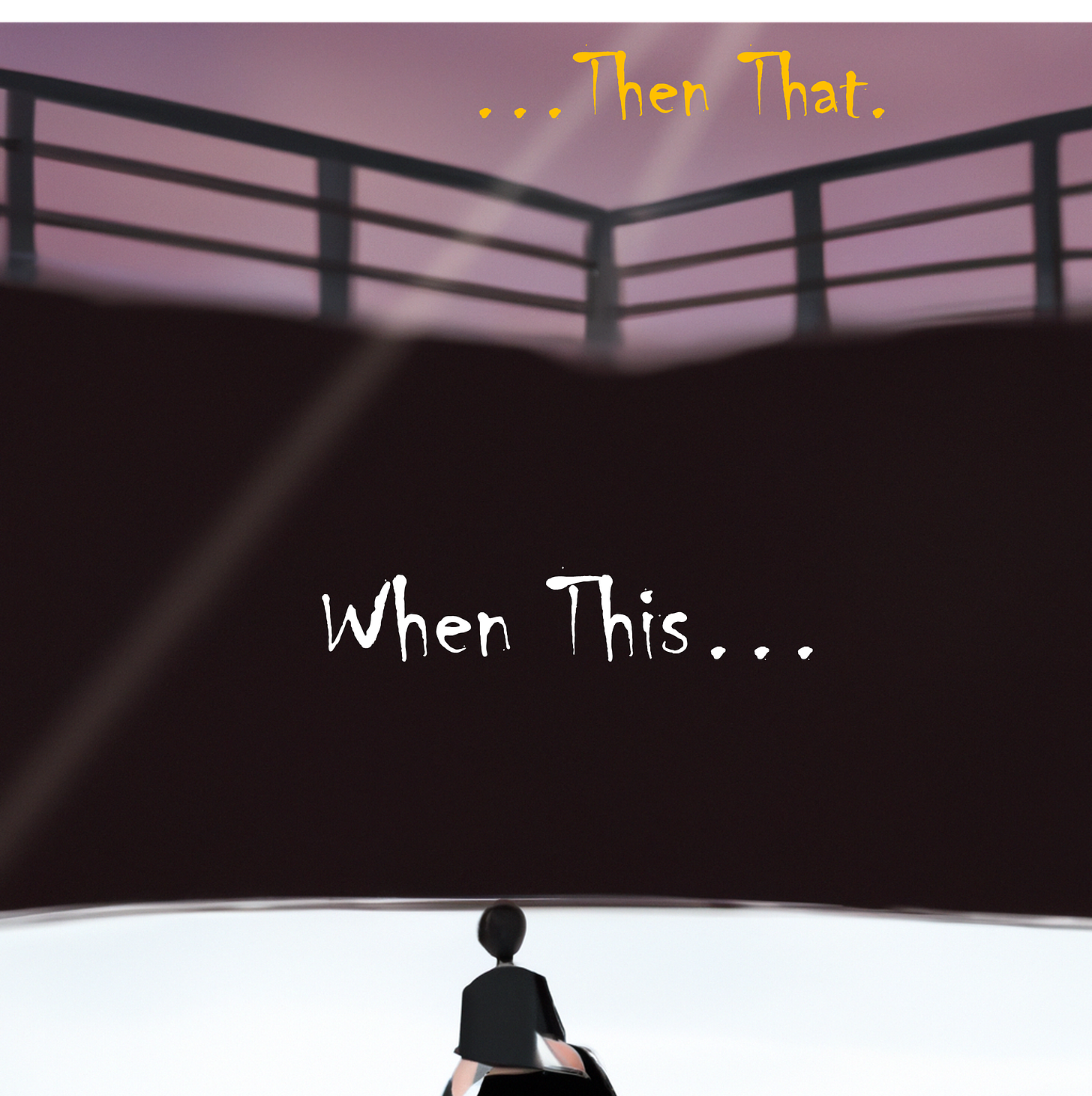One of the greatest lies sold to us as societies in the past couple of hundred years, is the idea of ‘when you get X, you’ll be Y’.
It’s what I think of as the ‘When This, Then That’ trap.
I work in marketing. In the early 1900s, the industry’s foundations were established through a series of people who understood that desire could be created.
Following the industrial revolution, the world had an ability, for the first time, to create wide ranging sets of products that could be developed for different needs. We moved from a world of ‘I need wheat’ to ‘how do you prefer your wheat?’ - puffed, crackled, popped, encased in chocolate?
The recognition of our ability to craft desires has had a monumental impact on the world. Advertising, social media, influencers have all evolved over the course of the past century to tap into this societal evolution en masse.
But this evolution simply took advantage of a core fundamental human need that has always existed within human groups: our need for status1. In short, when we feel we lack status within a group, we worry that we won’t have access to resources that are vital for us to survive. Therefore, we are primed to keep our eyes open as to what might provide status. Seeking it is not only natural, it is critical to our sense of being.
But, unless we are vigilant, this need can be used against us.
It’s what lies at the heart of the ‘When This, Then That’ trap.
When I get that car, then I’ll feel as thought I’ve made it.
When I get promoted, then I’ll feel recognised.
When I get married, then I’ll feel fulfilled.
When I buy a house, then I’ll feel secure.
But what turns this line of thinking into a trap, is that we’re not programmed to work like that.
At end of 2022, I bought a set of golf clubs. It was the first brand new set I’d ever bought. And it was really exciting. For the first few rounds. Six months on, they’re just the clubs in my bag.
I’m really excited to receive a kitchen tidy caddy today. I’ll finally be able to keep the dishwashing liquid, clothes and sponges in an orderly way rather than the haphazard dotting of items that exists today (and yes, that reveals plenty about my habits). But in a week’s time, the new system will just be a way of being.
If human emotions followed a linear equation of When X, Then Y, we would lose our motivation to keep achieving.
A sense of achievement, or happiness, exists as a means to motivate us to keep achieving. But, like the above examples, it has the rather annoying habit of disappearing pretty quickly after we achieve it. It is fleeting, existing only in moments.
As a result, the ‘When This, Then That’ cycle is a cruel one. Always tempting, but only momentarily fulfilling. So how do we break it?
It’s a simple answer, but not an easy one:
To break the ‘When This, Then That’ cycle,
We must learn to want what we already have.
Naval Ravikant is a highly successful Indian-American entrepreneur and investor with a net worth of $60million. He has access to anything he might desire. But he recognises that the solution is not to accumulate possessions. It is to relinquish desires. It is to want what he already has, and he captures this in a simple thought:
“If you can’t be happy with a coffee,
You won’t be happy with a yacht.”
- Naval Ravikant
Training ourselves to recognise what we already have, and to be grateful for it, helps us to break free of the ‘When This, Then That’ trap.
It’s the difference between “When I lose 10kgs, then I’ll be happy”, and “I’m fortunate that I have the resources of time and health to be able to go for a walk”.
It’s the difference between “When we install the new outside decking, then the house will be complete” and “What an incredible thing to be able to have the financial means to own a property”.
In short, the key to happiness is gratitude for what we have today. Not desiring what we think will give us something tomorrow.
This is behind the idea of ‘being present’. Which simply means paying attention to what we have right now.
But it’s a skill that must be trained, and starts with paying attention:
Recognise when you have a desire for something in the future: “I want a new phone”
In front of that desire, place a thought of gratitidue of the now: “I’m lucky to be alive in an era where I can be connected to anyone I care about at the touch of a button, even with this old phone.”
The above approach doesn’t mean you will stop desiring a new phone, or feeling motivated to work hard to afford one, but it will help to provide perspective on what truly matters to you in the here and now.
Or, as the Bhuddists put it:
“Happiness is the absence of striving for happiness.”
- Chuang Tzu
Have a Grey Week,
Chris






